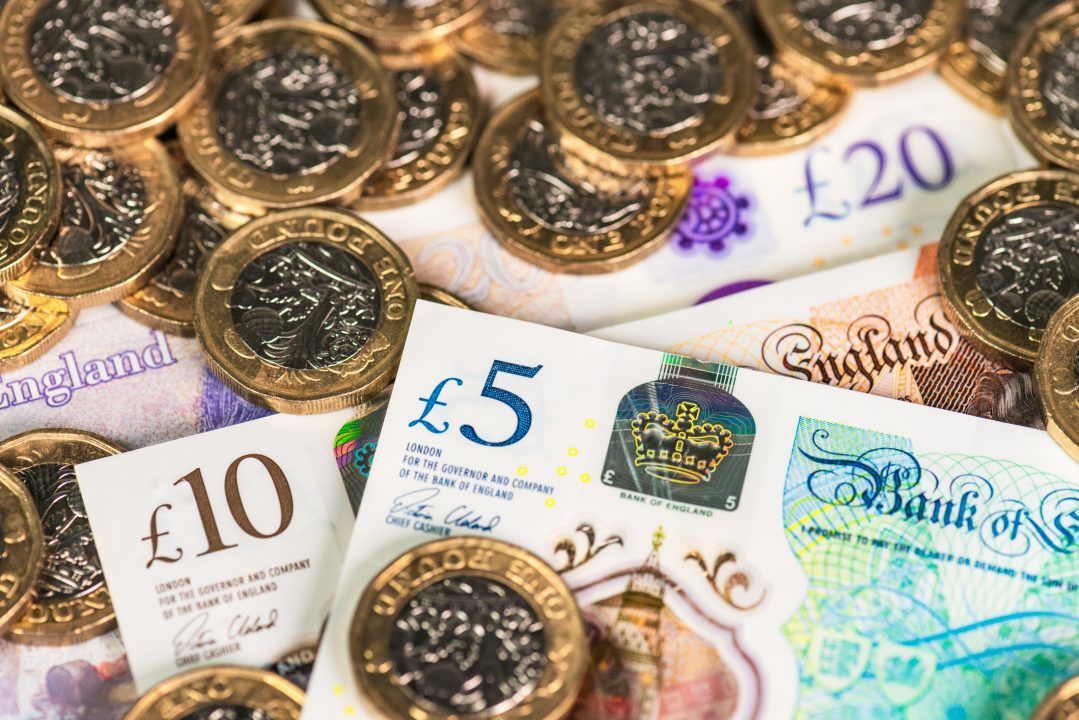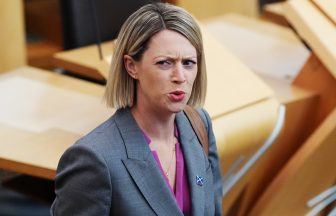Inflation has leapt to a 40-year high of 11.1% in October, the Office for National Statistics has said.
The Consumer Prices Index hit the record high, rising from 10.1% in September.
Chancellor Jeremy Hunt has warned that getting inflation under control would require “tough but necessary decisions on tax and spending to help balance the books”.
The rise in inflation marks the highest level of inflation since January 1982.
The sharp rise comes after the hike in the energy price cap in October as a result of sky-high wholesale prices amid Russia’s war on Ukraine.
But the rise in bills has been cushioned after the Government stepped in to limit the increase in bills to around £2,500-a-year for households, with support also offered to businesses.
The Government promised in September that no household in the UK would pay more than 34p per unit of electricity and 10.3p for every unit of gas that they used.
For the average family, this would mean bills would reach around £2,500 per year, but households that used a lot of energy could pay more and people could reduce their bills by using less.
Before the price cap support, the Bank of England had warned that inflation could surge to 13.3% in October, with estimations at the time that Ofgem’s price cap would skyrocket to around £3,450 without any Government help.
Grant Fitzner, chief economist at the Office for National Statistics (ONS), said: “Rising gas and electricity prices drove headline inflation to its highest level for over 40 years, despite the Energy Price Guarantee.
“Over the past year, gas prices have climbed nearly 130% while electricity has risen by around 66%.
“Increases across a range of food items also pushed up inflation.
“These were partially offset by motor fuels, where average petrol prices fell on the month, while the price for diesel rose taking the disparity in price between the two fuels to the highest on record.
“There was further evidence that costs facing businesses are rising more slowly, driven by crude oil and petroleum prices.”
The chancellor said: “The aftershock of Covid and Putin’s invasion of Ukraine is driving up inflation in the UK and around the world.
“This insidious tax is eating into pay cheques, household budgets and savings, while thwarting any chance of long-term economic growth.
“It is our duty to help the Bank of England in their mission to return inflation to target by acting responsibly with the nation’s finances. That requires some tough but necessary decisions on tax and spending to help balance the books.
“We cannot have long-term, sustainable growth with high inflation. Tomorrow I will set out a plan to get debt falling, deliver stability, and drive down inflation while protecting the most vulnerable.”
In response to the 11.1% rate of Consumer Prices Index inflation, shadow chancellor Rachel Reeves said: “Inflation rising yet again will strike more fear in the heart of families across Britain dealing with soaring food prices, rising energy bills and a Tory mortgage premium on their home.
“British people feel the impact of rising inflation so much more than other countries because 12 years of Tory economic failure has left us exposed to any shocks.
“The potent mix of high inflation and low growth is trapping us in a vicious cycle of stagnation.”
Retailers have also warned “there are few signs the cost-of-living crisis will abate any time soon” as they stepped up calls for help from the chancellor.
Helen Dickinson, chief executive of the British Retail Consortium, said: “Many customers are keenly anticipating Black Friday deals and other promotions in the run up to Christmas, as they prepare to buy gifts and festive treats.
“Unfortunately, there are few signs the cost of living crisis will abate any time soon.
“Tomorrow, the Chancellor will unveil the autumn budget, where he has the opportunity to provide support for struggling households and relieve some of the costs on retailers and their suppliers, which in turn put pressure on prices.
“Retailers face an £800 million per year hike in business rates from April 2023, so urgent Government action is needed to mitigate this and prevent even higher inflation in the new year.”
Follow STV News on WhatsApp
Scan the QR code on your mobile device for all the latest news from around the country


 iStock
iStock
























